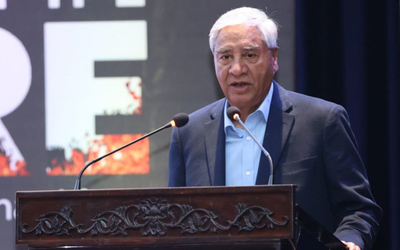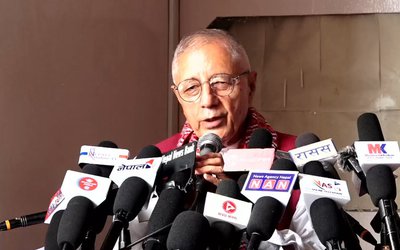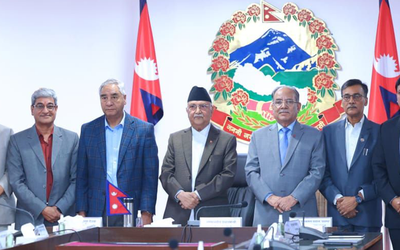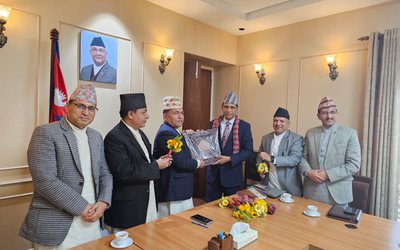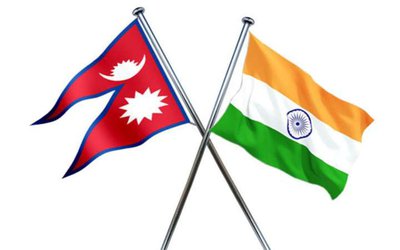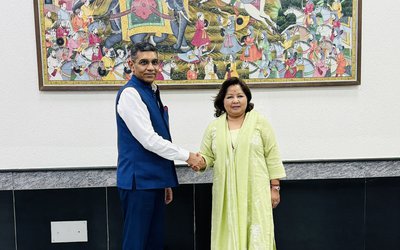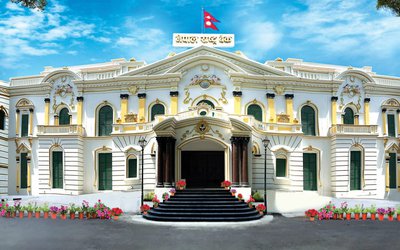
Just a couple of days prior to Oli raising the question of propriety over the size of the cabinet, three parties quietly agreed to let the parliament sanction Rs 10 billion to the outgoing MPs.
Former prime minister and chairman of the main opposition K P Oli is known for his wits and barbed attack on his opponents. He often uses his sense of humor in self-defence, and in skirting crucial issues. On Saturday during his speech on the last day of parliament, he turned towards Prime Minister Sher Bahadur Deuba who also has the distinction of heading the largest ever cabinet, much beyond the size the constitution permits. “Are you going to organize procession of ministers,” he asked.
It was definitely an uncomfortable question that Deuba faced since he was going to add eight more ministers bringing the size of the council of ministers to 68 against a ceiling of 25 put by the constitution. With the demise of parliament, it was an ideal moment for Deuba to include his new allies in the ministry since the current coalition partner, the Nepal Communist Party-Maoist Centre, had joined the newly formed Left Alliance led by Oli, but without resigning from the cabinet.
“Any expansion of the cabinet now is inappropriate and we lodge our strong protest against such a move,” Oli said, but did not say a word about or against Maoists continuing in the Council of Ministers despite defecting to the opposition led political alliance.
Interestingly, Deuba continues to retain the Maoist ministers, although he defied Oli’s warning and inducted seven ministers – from cabinet rank and three ministers of state – soon after bidding farewell to Parliament, despite pressure from the central committee of the Nepali Congress Party, that PM Deuba heads, to drop them in view of the changed political equation. Deuba is now mulling the idea of stripping them off the portfolios and assigning to his new ally, the Rastriya Prajatantra Party.
But for those witnessing and feeling the pinch of Nepali politics, especially in the past ten years, politics is solely power driven, with three major parties – Nepali Congress, UML and the Maoists – together forming the political establishment. Despite changing political equation which affects the life of the government, these three parties have been together on exercising immunity, promoting institutional corruption and filling up state organs including higher judiciary with the followers of their parties on ‘proportional’ basis.
Just a couple of days prior to Oli raising the question of propriety over the size of the cabinet, three parties quietly agreed to let the parliament sanction Rs 10 billion to the outgoing MPs. This will clearly give them the unethical advantage over the new contestants in federal elections that have been scheduled in two phases November 26 and December 7. Parliament secretariat also decided to sanction another few million rupees as travel expenses to the outgoing MPs, as they leave the capital for their constituencies.
Courtesy: Beyond The News, Indian Express

Yubaraj Ghimire
Ghimire is a Kathmandu based journalist.
- Manmohan Singh And The Churn In Nepal
- Jan 08, 2025
- Why ‘Revolutionary’ Communist PM Prachanda Went To Temples In India
- Jun 08, 2023
- Why China Is Happy With Nepal’s New PM
- Jan 03, 2023
- Prachanda Sworn In As PM: New Tie-ups In Nepal, Concern In India
- Dec 27, 2022
- Young TV Anchor As Its Face, RSP Rise Takes Nepal By Surprise
- Nov 23, 2022



